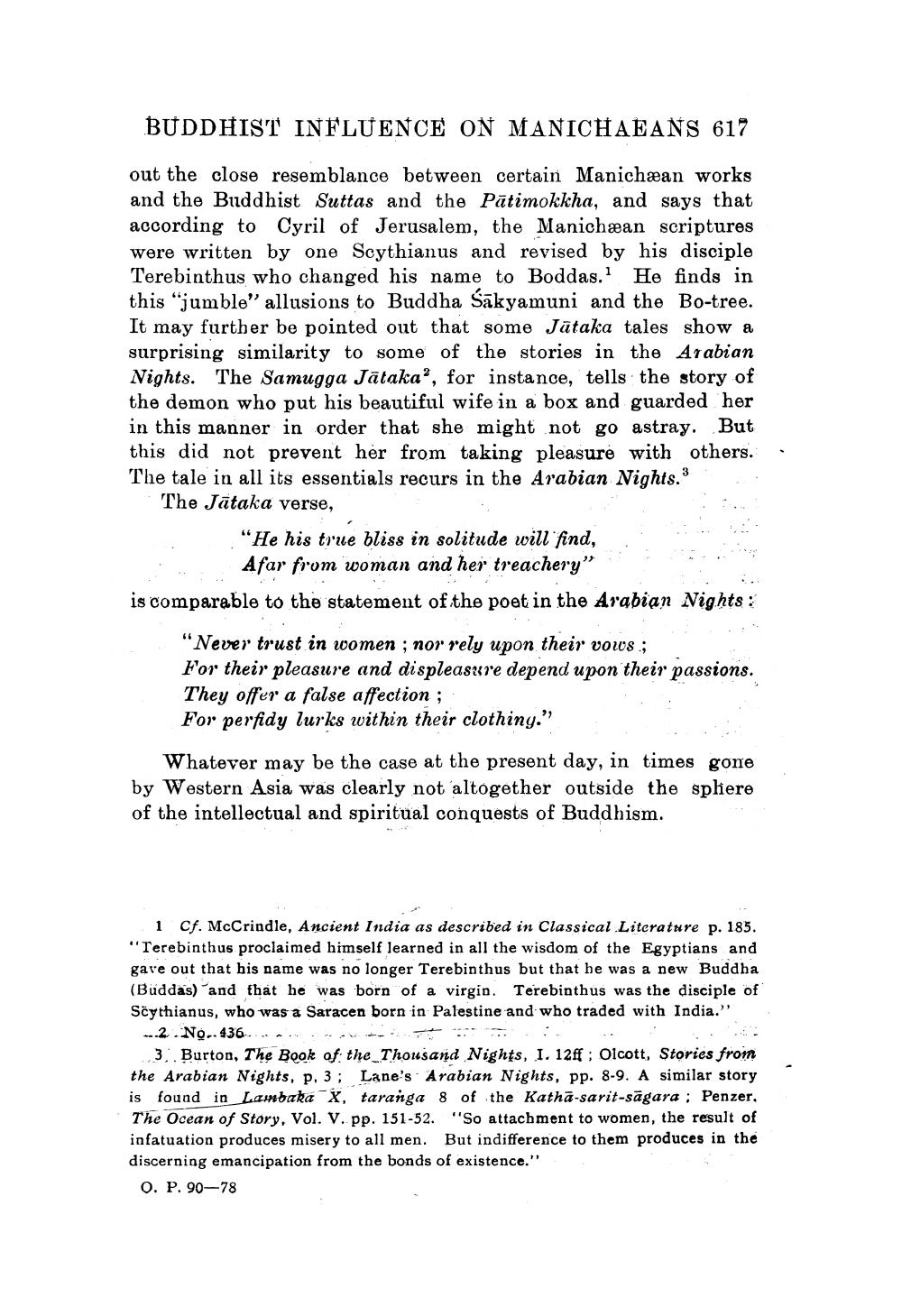________________
BUDDHIST INFLUENCE ON MANICHAEANS 617
out the close resemblance between certain Manichæan works and the Buddhist Suttas and the Pātimokkha, and says that according to Cyril of Jerusalem, the Manichæan scriptures were written by one Scythianus and revised by his disciple Terebinthus who changed his name to Boddas. He finds in this "jumble' allusions to Buddha Sakyamuni and the Bo-tree. It may further be pointed out that some Jātaka tales show a surprising similarity to some of the stories in the Arabian Nights. The Samugga Jātaka, for instance, tells the story of the demon who put his beautiful wife in a box and guarded her in this manner in order that she might not go astray. But this did not prevent her from taking pleasure with others. The tale in all its essentials recurs in the Arabian Nights. The Jātaka verse,
"He his true bliss in solitude will find,
Afar from woman and her treachery" is comparable to the statement of the poet in the Arabian Nights :
"Never trust in women; nor rely upon their vows; For their pleasure and displeasure depend upon their passions. They offer a false affection ; For perfidy lurks within their clothiny."
Whatever may be the case at the present day, in times gone by Western Asia was clearly not altogether outside the sphere of the intellectual and spiritual conquests of Buddhism.
1 Cf. McCrindle, Ancient India as described in Classical Literature p. 185. "Terebinthus proclaimed himself learned in all the wisdom of the Egyptians and gave out that his name was no longer Terebinthus but that he was a new Buddha (Buddas) and that he was born of a virgin. Terebinthus was the disciple of Scythianus, who was a Saracen born in Palestine and who traded with India." 2.No. 436.. .
. 3. Burton, The Book of the Thousand Nights, I. 12ff ; Olcott, Stories from the Arabian Nights, p. 3; Lane's Arabian Nights, pp. 8-9. A similar story is found in Lambakax, taranga 8 of the Kathā-sarit-sāgara : Penzer. The Ocean of Story, Vol. V. pp. 151-52. "So attachment to women, the result of infatuation produces misery to all men. But indifference to them produces in the discerning emancipation from the bonds of existence."
0. P. 90—78




